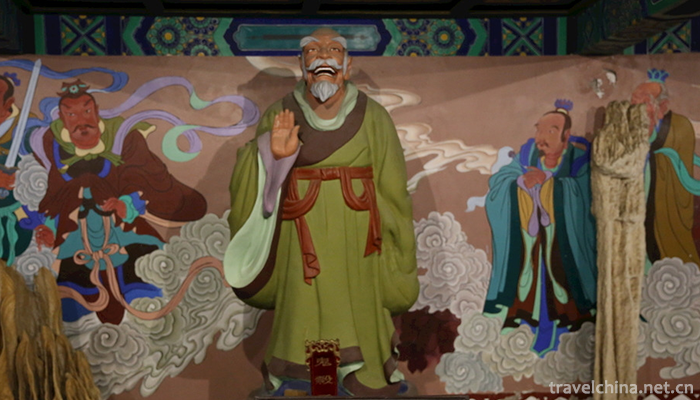Ghost Millet Guiguzi Legend
Guiguzi Birthplace Site is located in Salt Food Village, Xiangcaiying Township, Linzhang County. It covers an area of 76 Mu and has a construction area of 26 mu. It has six antique buildings, mostly with two-storey eaves and four sloping roofs. Linzhang has also built the Holy Land of Ghost Millet, Dragon and Tiger Mao Cao Nunnery, which attracts people's attention most is the blood platelet of the birth of Ghost Millet, which has become the vivid carrier of the legendary birth story of Ghost Millet. In 2010, Linzhang was designated as the "home of Chinese ghost millet culture" by Guiguzi Branch of Pre-Qin History Society of China.
primary coverage
"Guiguzi" is a famous Taoist and military educator in the Warring States Period. It is known as the originator of vertical and horizontal scholars. He not only founded China's first military school, but also trained Zhang Yi, Su Qin, Sun Bin, Pang Juan, Mao Sui, and other military strategists and strategists, whose main works are Ghost Guzi and the Seven Skills of Yin Fu in Benjing. One of the most common statements about his life is that the Yedi people of the State of Wei in the Warring States Period, which is the Guzi Village of Coriander Yingxiang, Linzhang County, Handan City today.
Inheritance status
According to local legends, Ghost Valley is the mother of Ghost Valley, which is named Ghost Valley. There is a ghost millet ancestral temple in Guzi Village of Linzhang County in Qing Dynasty, which preserves a complete monument of Guangxu years, which describes the life story and achievements of ghost millet. In the salt food of the neighbouring village, there is still a monument of the Notre Dame of the Ming Dynasty. In recent years, Linzhang County combines Ghost Millet Culture with Yecheng Culture and Jian'an Culture, initiates the construction of Ghost Millet Cultural Scenic Spot, and successively constructs ancestral halls, Warring States Military Academy Hall, Ghost Millet Cultural Exhibition Hall and Pre-Qin Cultural Exhibition Hall. In 2010, Linzhang was designated as the "home of Chinese ghost millet culture" by Guiguzi Branch of Pre-Qin History Society of China.
On July 24, 2014, Linzhang "Ghost Millet Legend" has been successfully selected into the fourth batch of national intangible cultural heritage representative projects list.
Declaration of intangible cultural heritage
In 2014, the Ministry of Culture organized experts to review 1111 projects declared throughout the country in accordance with the evaluation criteria, and put forward 298 recommended lists for the fourth batch of representative national intangible cultural heritage projects, 151 of which were newly selected, 14 in Hebei Province, and the "Ghost Millet Legend" declared by Linzhang County, which is also the second national intangible cultural heritage project in the county.

0 Questions
Ask a Question
Your email address will not be published.